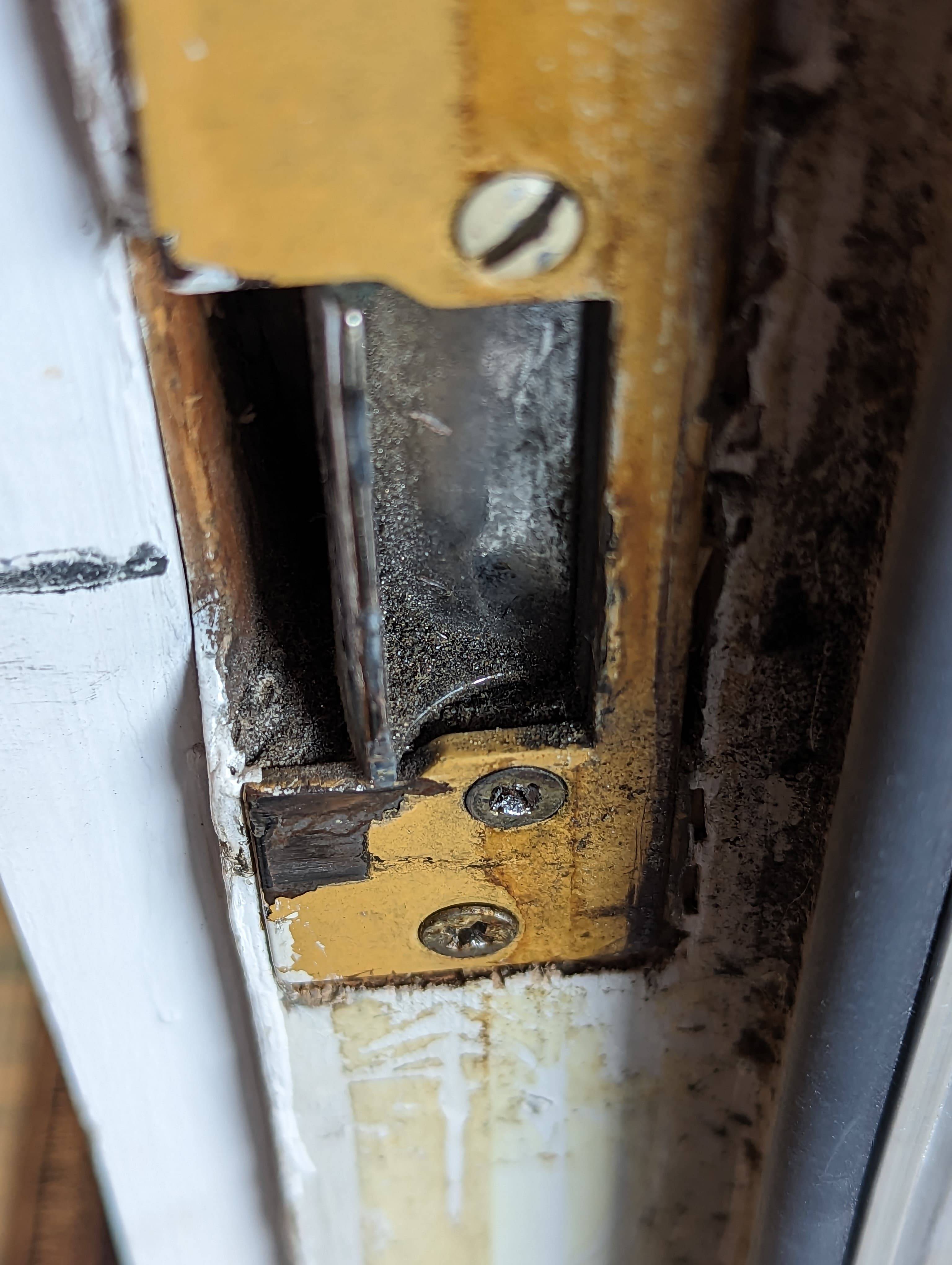My friend has an exterior door with this strike plate on its frame. Does anyone know what this type of plate is called, and what purpose it has? The inner part is hinged in a way that allows it to rotate around a vertical axis by just one degree or so when the door is latching. It looks sort of like an electronic door strike plate, but based on its apparent age, I doubt that's what it is.
-
A picture of the door latch will help. It seems like a catch for the door latch, but with all the metal shavings it might be ready to die/break/stop working/stick in place and prevent the door from closing/opening. Not good if you need to get out or in.– crip659Commented Nov 8, 2023 at 21:10
-
@crip659 sadly the door latch appears to have been replaced with a more standard latch than I would expect to match up with this strike plate (and which indeed doesn't play nicely with it)– Ben RegenspanCommented Nov 8, 2023 at 21:22
-
2The electric strike was invented in the late 1800s,– JasenCommented Nov 9, 2023 at 3:49
1 Answer
If you think electrically controlled locks were invented in the 21st century, think again. That's certainly what comes to mind when looking at it, and likely it rotates more than 1 degree (and lets the door open with the latch sticking out) when some solenoid is activated, if wired up and working for that purpose.
"With the latch sticking out" is why the frame is cut away in front of it (to the left in picture) which is, in fact, diagnostic. Rather than try to get building control wires to work on a door that moves, the strike on the frame that does not move is controlled by the building, but someone with a key (or hitting the exit bar) can still operate the door latch, as needed.
-
1Our parents also had voice control universal remote controls that also did dishes, dusting and vacuuming.– crip659Commented Nov 8, 2023 at 21:26
-
2Thank you! There does indeed appear to be some wiring buried deep in that cut-away part of the frame, so this must be it! Commented Nov 8, 2023 at 21:27
-
9
-
3They're very common in London where lots of the huge old Victorian buildings were divided up into flats [apartments] after the war. There's a doorbell with multiple buttons for each flat & mic/speaker on the wall outside. The flats all have a phone on the wall with a door release button. Many of them still work. They were a pretty competent retrofit for a building not designed that way initially.– TetsujinCommented Nov 9, 2023 at 8:57
-
1They're bog standard in NYC, @Tetsujin. I fondly remember hitting the buzzer button in my grandparent's building in Mid-Town and getting to push the door open when they buzzed. I also remember the thrill of being allowed to respond to the buzzer upstairs and allow someone in. They were also a cause for security breaches (before that was a buzz-word, get it, "buzz word"... :) because some people would hit every button on the panel downstairs until someone buzzed them in from upstairs without checking to see who it was...– FreeManCommented Nov 9, 2023 at 17:01

